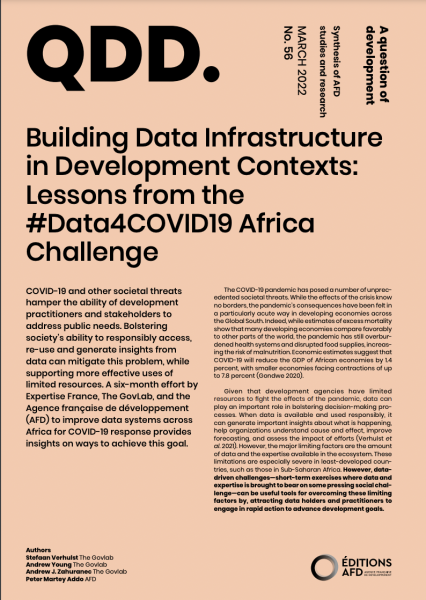
Report by Stefaan Verhulst, Andrew Young, Andrew J. Zahuranec, Peter Martey Addo: “COVID-19 and other societal threats hamper the ability of development practitioners and stakeholders to address The COVID-19 pandemic has posed a number of unprecedented societal threats. While the effects of the crisis know no borders, the pandemic’s consequences have been felt in a particularly acute way in developing economies across the Global South. Indeed, while estimates of excess mortality show that many developing economies compare favorably to other parts of the world, the pandemic has still overburdened health systems and disrupted food supplies, increasing the risk of malnutrition. Economic estimates suggest that COVID-19 will reduce the GDP of African economies by 1.4 percent, with smaller economies facing contractions of up to 7.8 percent (Gondwe 2020).
Given that development agencies have limited resources to fight the effects of the pandemic, data can play an important role in bolstering decision-making processes. When data is available and used responsibly, it can generate important insights about what is happening, help organizations understand cause and effect, improve forecasting, and assess the impact of efforts (Verhulst et al. 2021). However, the major limiting factors are the amount of data and the expertise available in the ecosystem. These limitations are especially severe in least-developed countries, such as those in Sub-Saharan Africa. However, datadriven challenges—short-term exercises where data and expertise is brought to bear on some pressing social challenge—can be useful tools for overcoming these limiting factors by, attracting data holders and practitioners to engage in rapid action to advance development goals…(More)”
